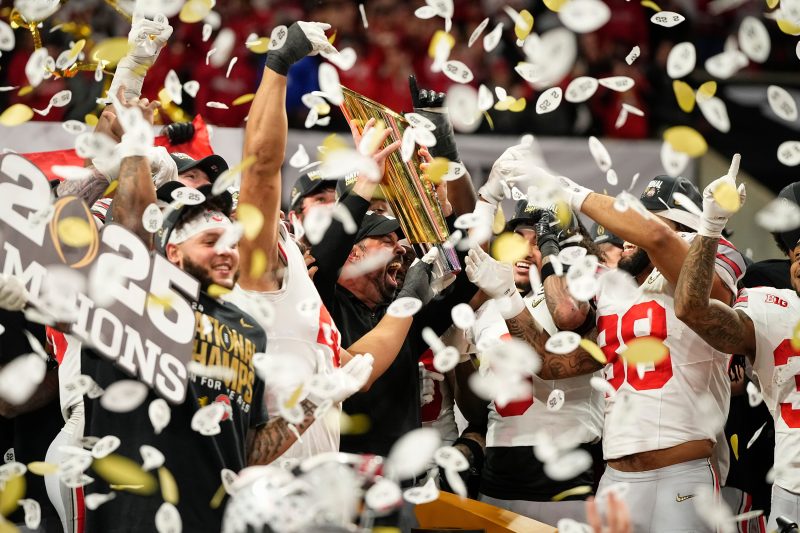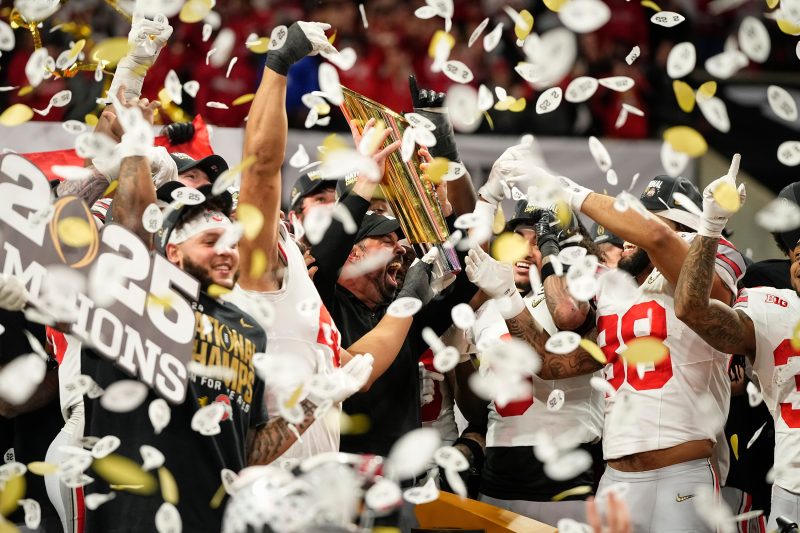
- The SAFE Act is considered player-friendly and aligns more with Donald Trump’s vision for college athletics than a rival Republican bill.
- Key provisions include expanding the Sports Broadcasting Act, allowing two free transfers, and letting players return to college after the NFL draft.
- The bill also proposes sports agent fee caps and privacy protections for NIL contracts.
If politics truly is bloodsport, things just got wildly entertaining in Washington D.C. with the introduction of another bill to fix college sports.
Not surprising: Democrats and Republicans see things differently.
More surprising: the Democrat-authored SAFE Act aligns more with President Donald Trump’s vision for college sports, a person close to the White House told USA TODAY Sports on the condition on anonymity.
The player-friendly SAFE Act, authored by prominent Democrat Senators and announced Monday evening, is a far-reaching bill that forces the federal trade commission into oversight of college sports. It is nearly polar opposite from the SCORE bill, which seeks antitrust exemptions from the federal government to make and enforce rules on NIL, player movement and eligibility.
The SAFE Act also provides for the expansion of the Sports Broadcasting Act of 1961 to college sports, allowing conferences to pool media rights in an effort increase revenue and provide funding for all sports.
Reached Monday night, Texas Tech board of regents chairman Cody Campbell — a staunch proponent of conferences pooling media rights — said the SAFE Act is a good first step in fixing college sports.
“I am encouraged by seeing people stand up against greed, disrespect and disregard for the institution of college athletics and for the student athletes,” Campbell told USA TODAY Sports. “This is in sharp contrast to the position we have seen taken by the conference commissioners, and from the NCAA as they have lobbied in favor of legislation like the SCORE Act.”
Earlier this summer, a person close to the White House told USA TODAY Sports that Trump decided to use Campbell as his point person in his fight to save women’s and Olympic sports. A billionaire businessman, Campbell has been using his own money this fall to promote change in college sports.
Some of the highlights of the SAFE Act include sports agent reform capping fees at 5%, and establishing privacy protections for NIL contracts to ensure they’re not disclosed without a player’s consent — and are not subject to federal or state open records laws.
The bill also covers player movement and the NFL draft, two critical components to roster building. Under the SAFE Act, players will be allowed two free transfers without losing a year of eligibility, and players will be allowed to return to college after the NFL draft, provided they do so within seven days of the draft.
While those are important, player-friendly steps, the biggest move, by far, is the expansion of the Sports Broadcasting Act of 1961 — something the Power conference presidents and commissioners are against. The SAFE Act ensures all sports will be paid for, and not eliminated because of a lack of funding.
An industry source told USA TODAY Sports this summer the Football Subdivision Conferences could get nearly twice the amount they currently receive for individual conference deals. The 10 FBS conferences currently make an estimated $4 billion annually combined through conference media rights deals, and the College Football Playoff contract.
“The NCAA and conference commissioners clearly don’t care about the future of women’s sports or Olympic Sports,” Campbell said.
Earlier this month, SEC commissioner Greg Sankey said he had yet to see evidence that expanding the SBA would result in “the numbers we’ve seen out there.”
Matt Hayes is the senior national college football writer for USA TODAY Sports Network. Follow him on X at @MattHayesCFB.

